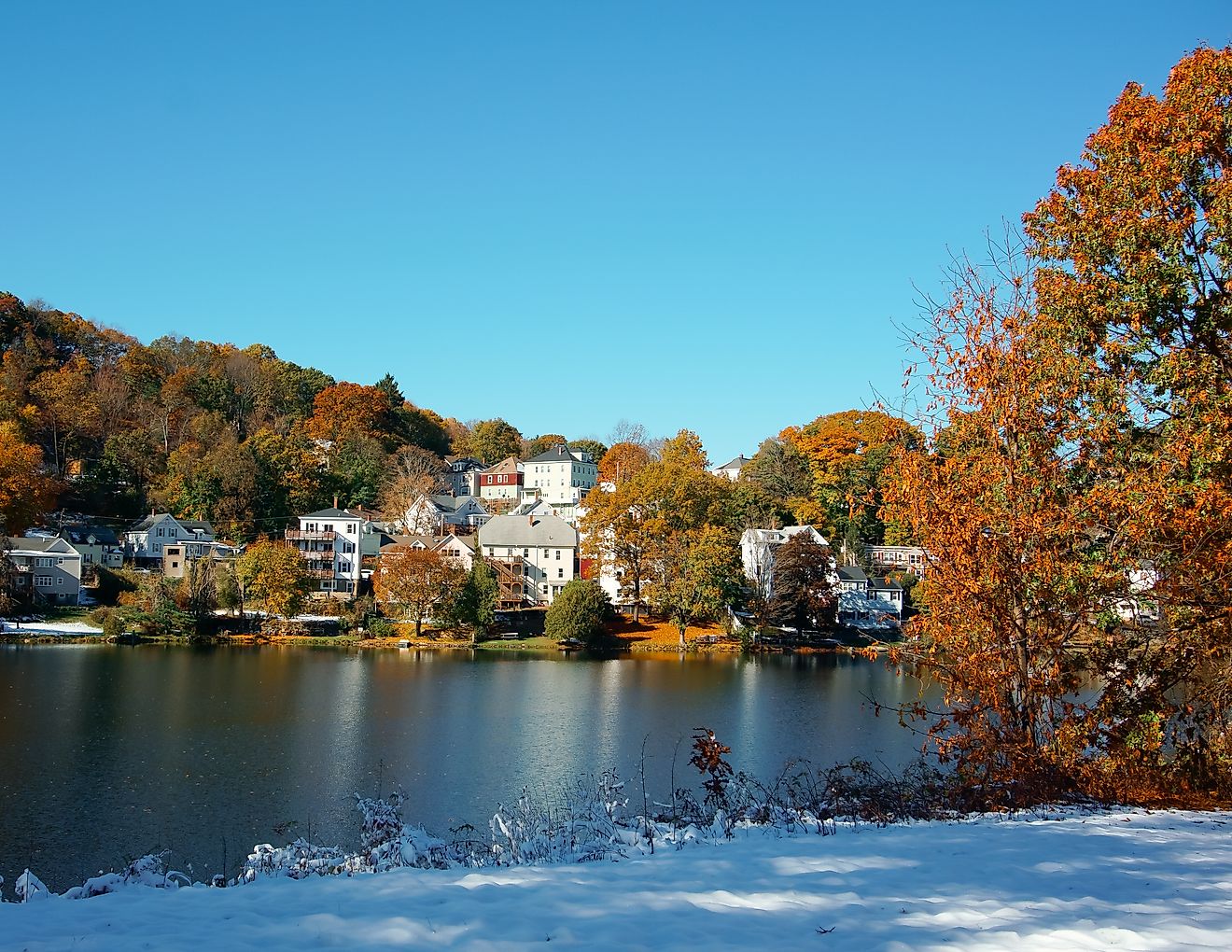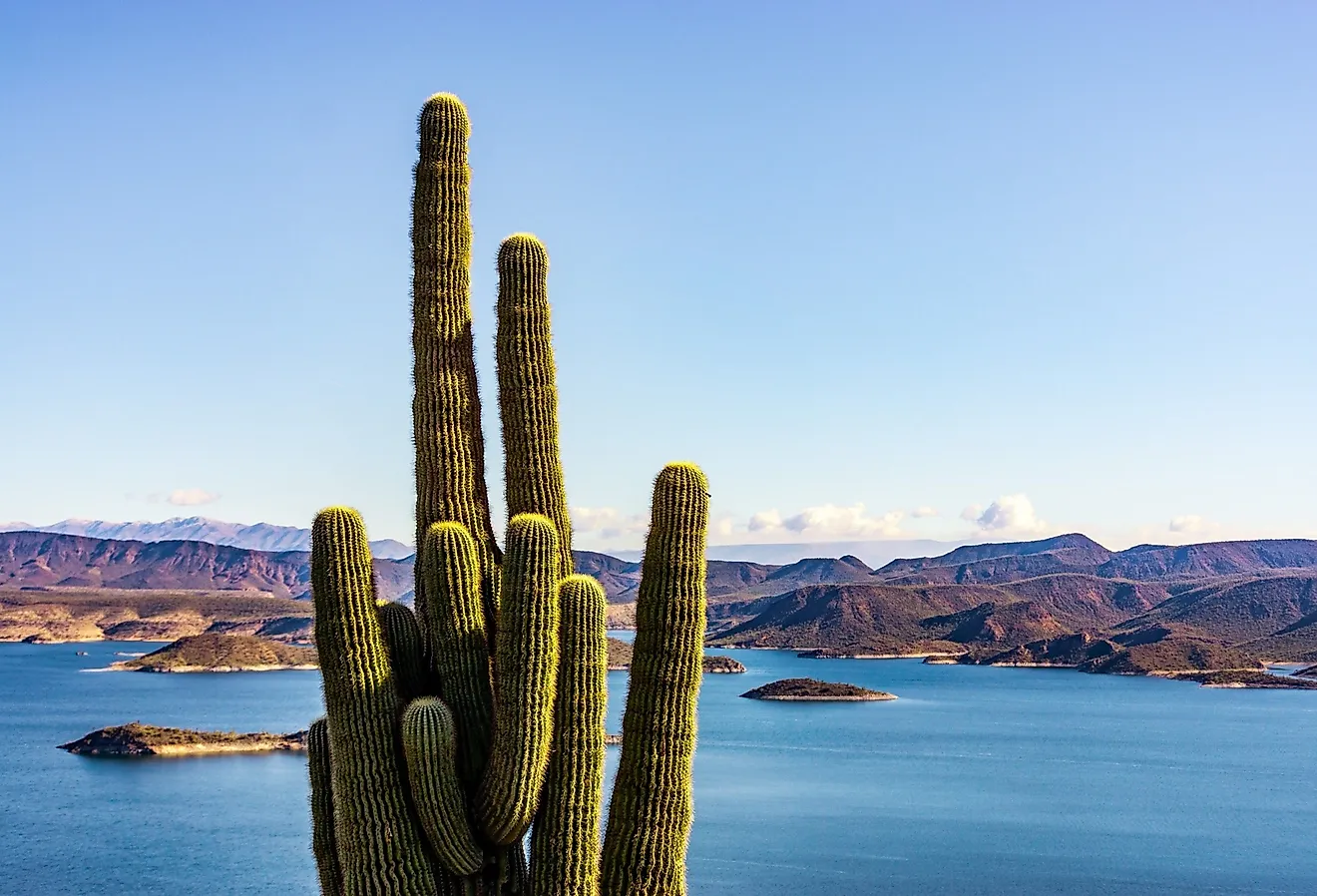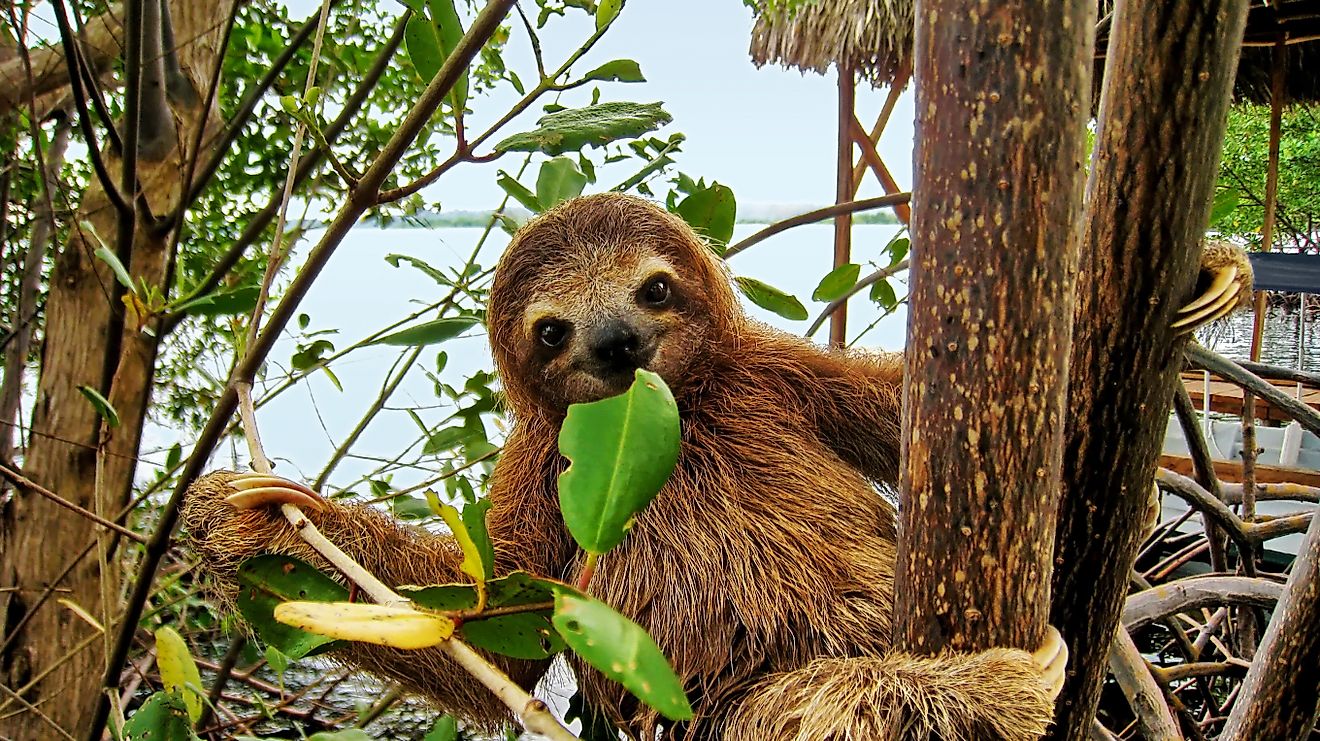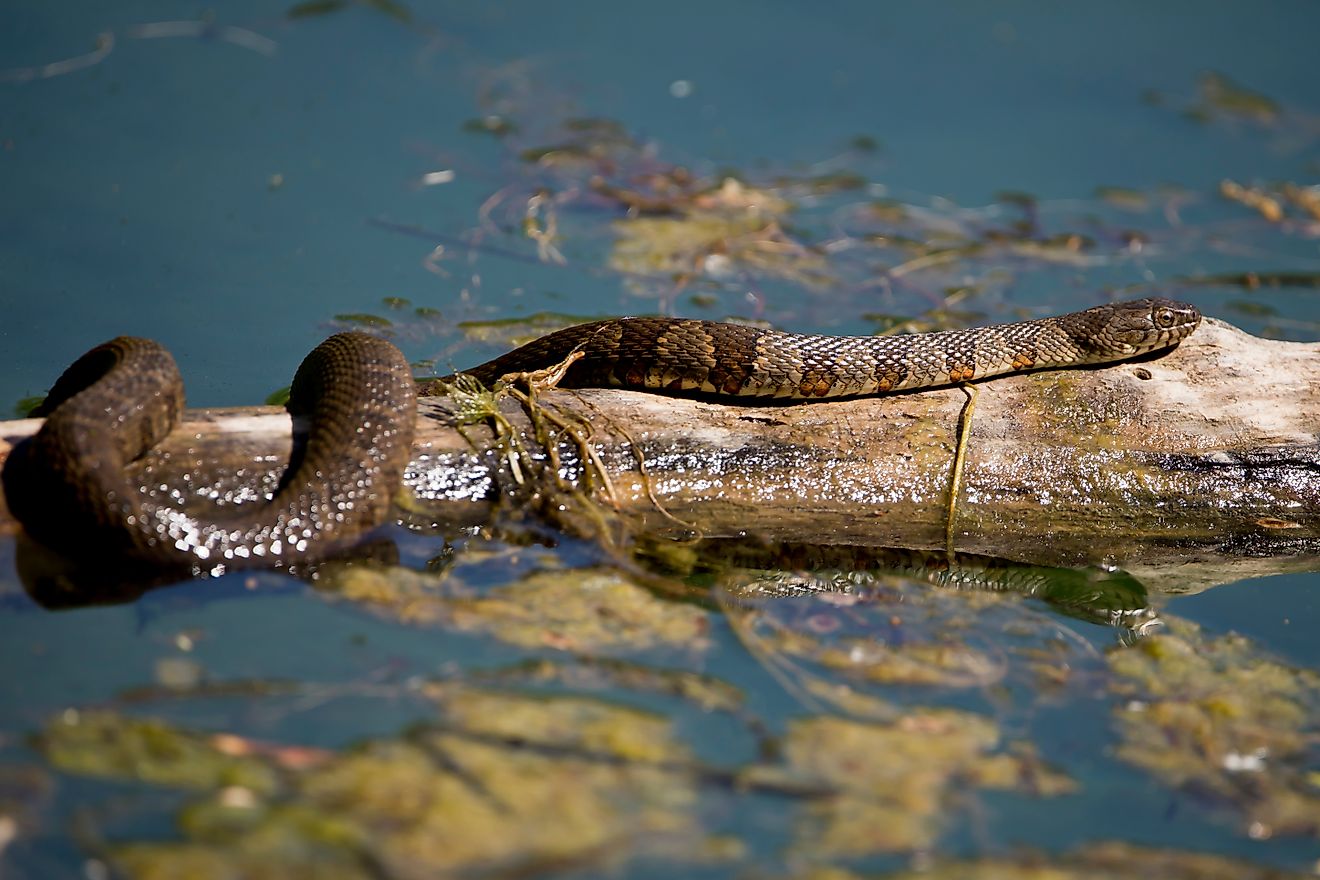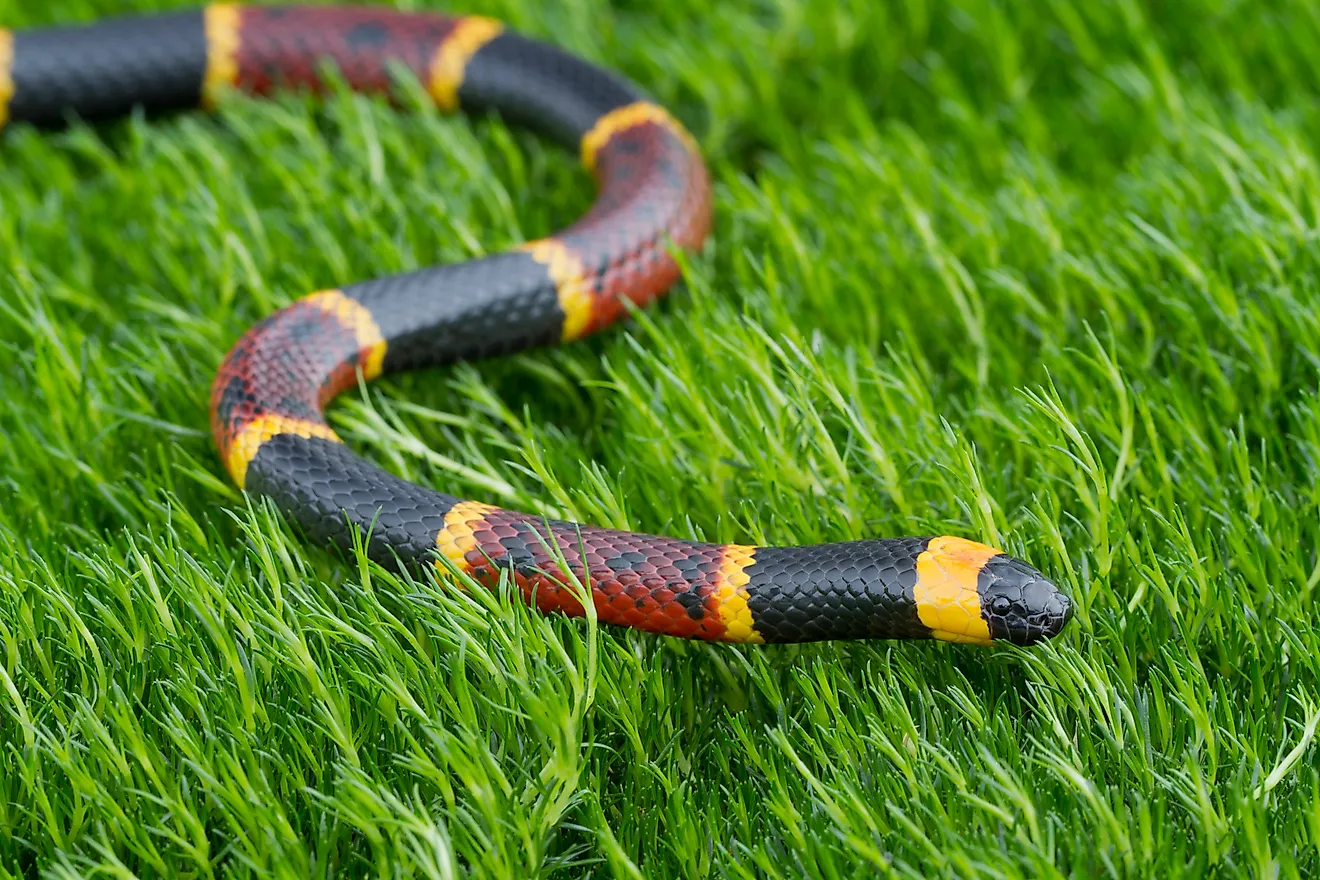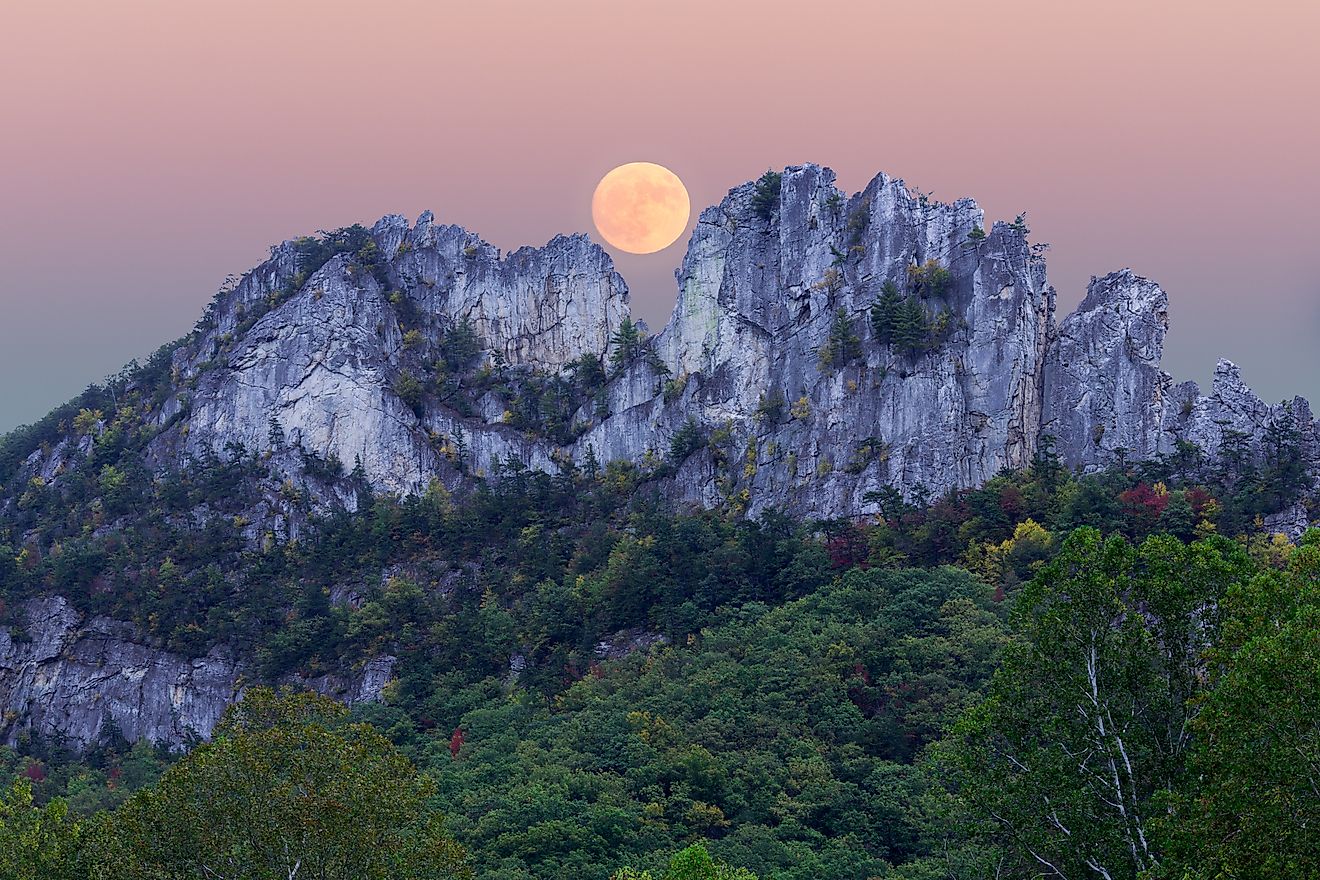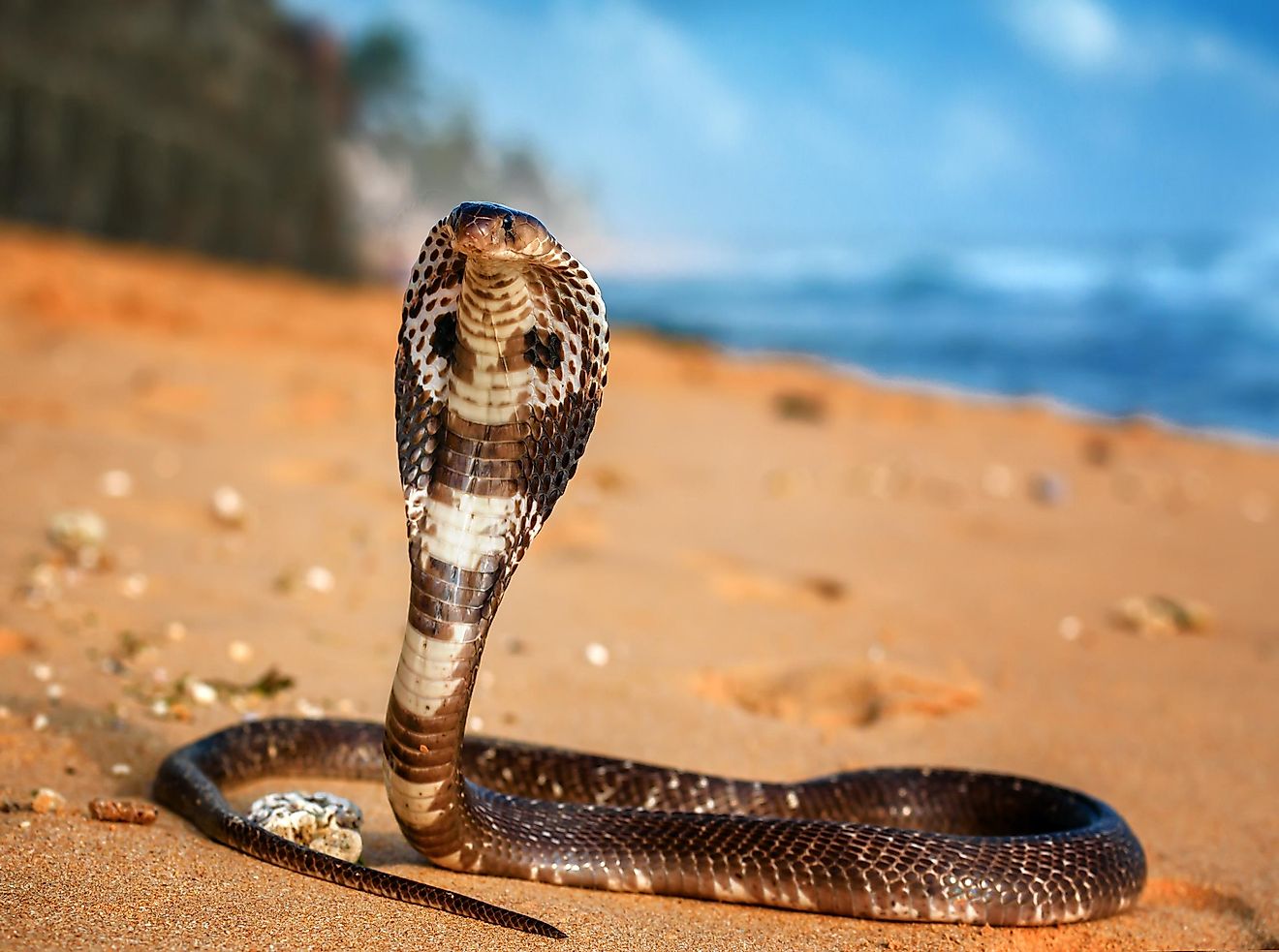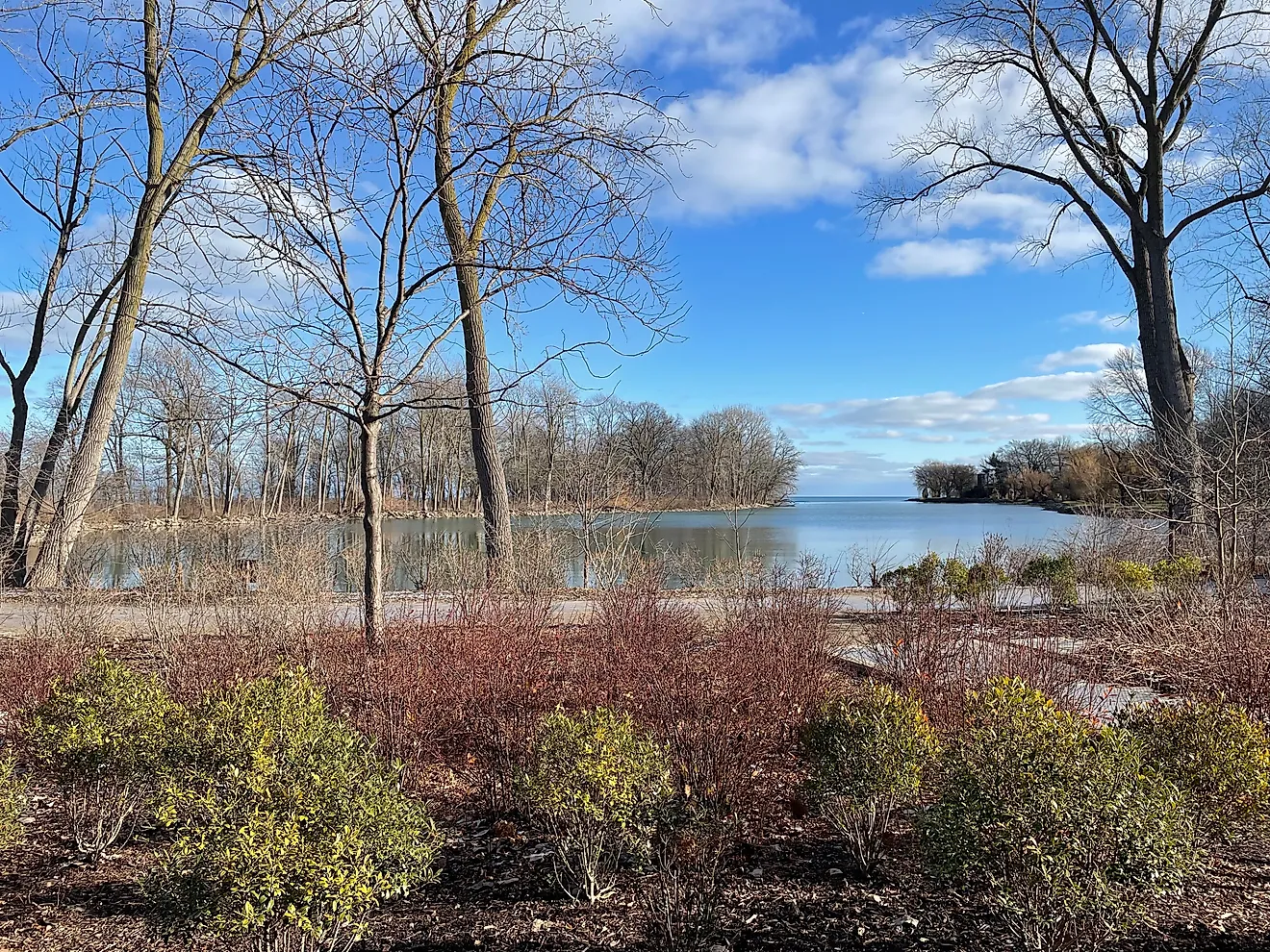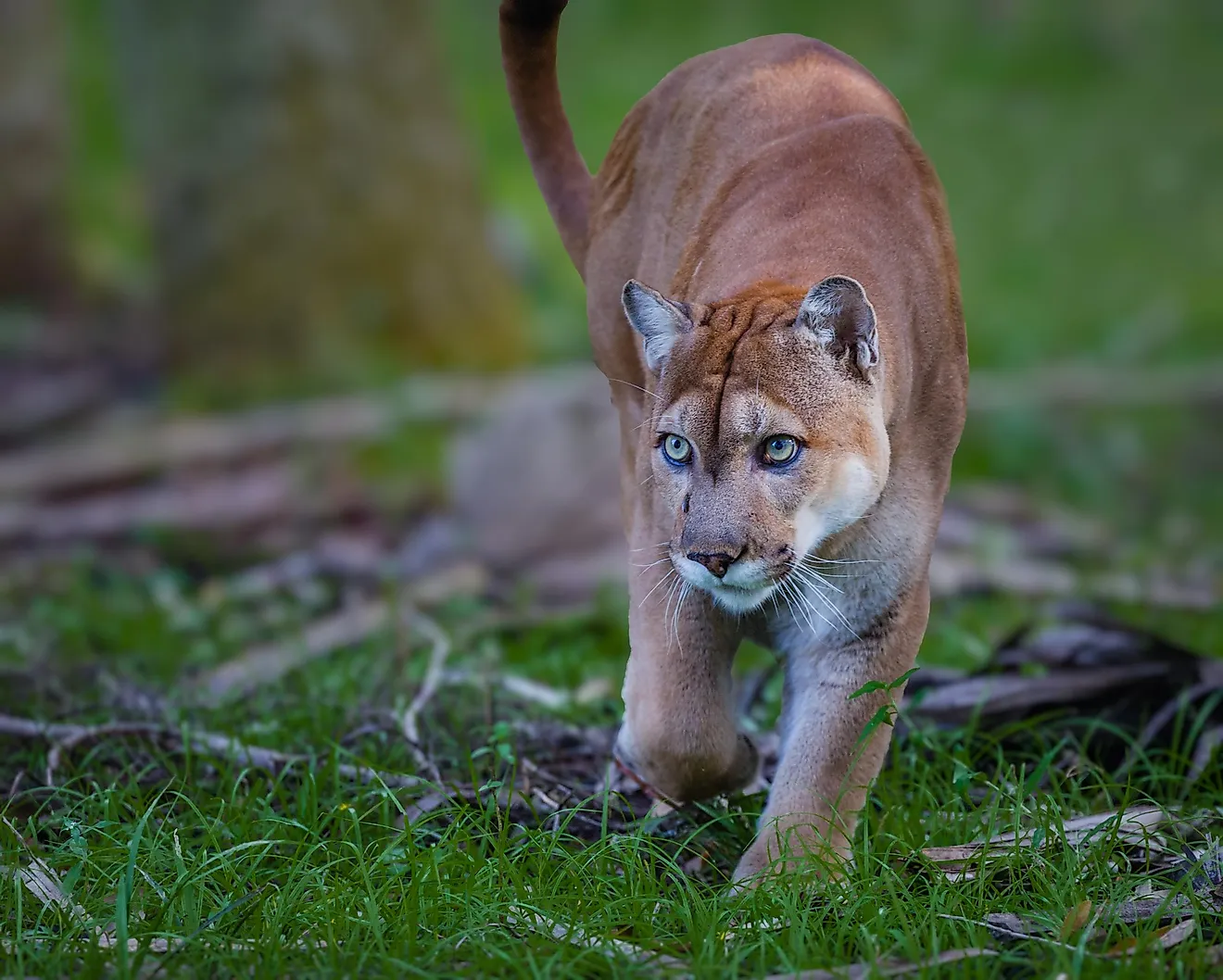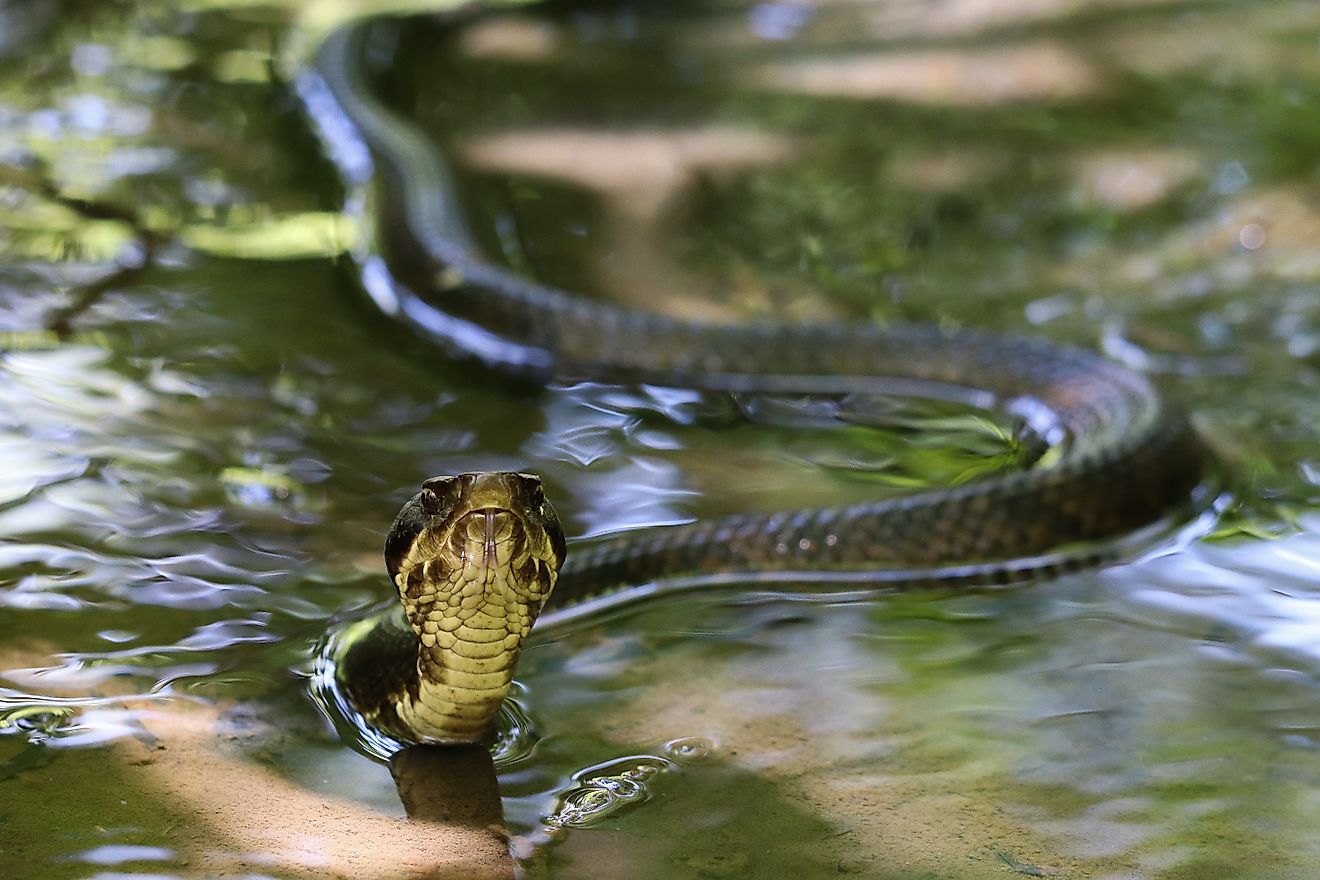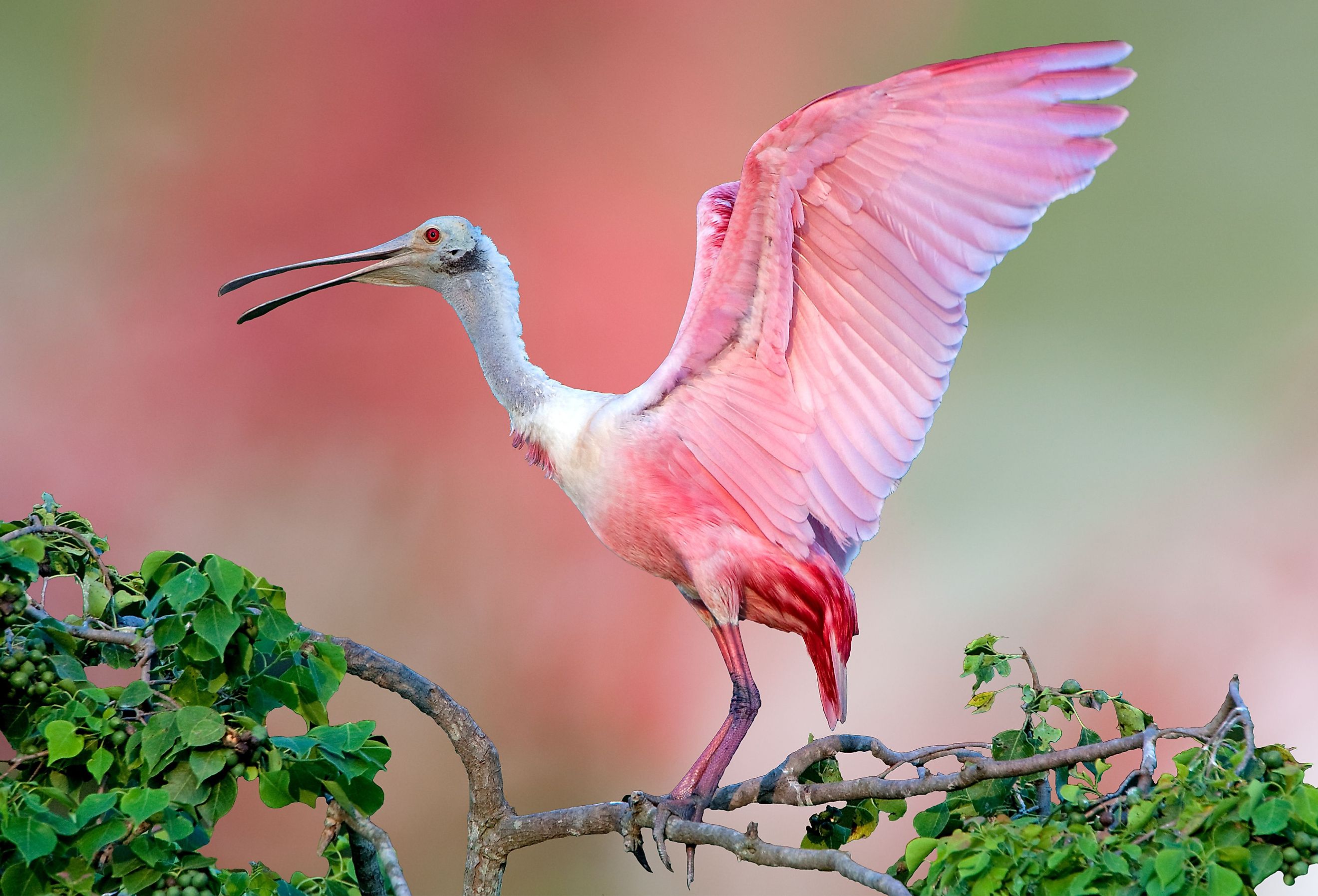
Birds Of Florida
The sunshine state is famous for beautiful beaches, fresh oranges, and Walt Disney World. It's also a favorite destination of Snowbirds. However, beyond the tourism and beaches, Florida is home to natural beauty and an abundance of wildlife from alligators to the Florida panther. One animal that is particularly abundant in Florida is birds. There are around 530 bird species in Florida. Some are migratory, while others remain in the state all year round. The state is even home to the rare Ivory-billed Woodpecker. In this article we will explore some of the birds of Florida and discover the best places to find them.
Florida's Geography
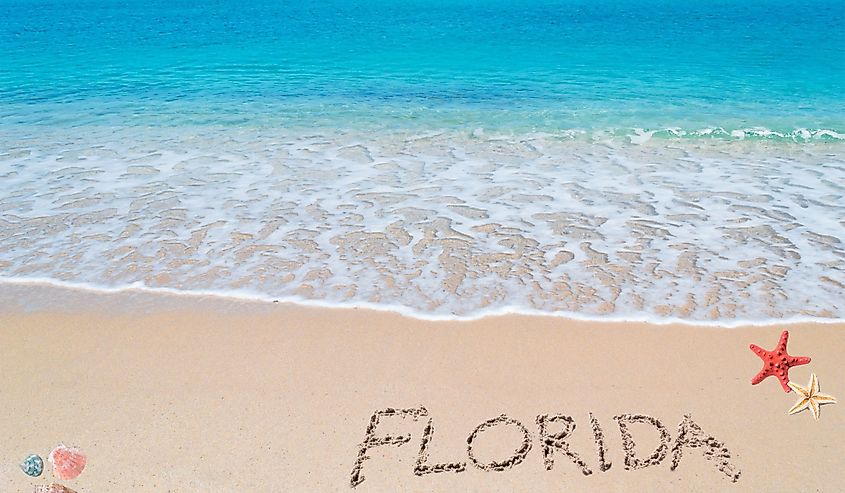
Florida's geographic location is a key factor in the state's ability to attract birds. The state is on the entrance of the Gulf of Mexico and shares a border with Georgia and Alabama. There are two different climate zones in Florida. The first one is the tropical zone which is south along the shore of Lake Okeechobee and goes to Vero beach. North of this line is the subtropical portion of the state. Overall, the state has a hot, humid climate. The temperature typically ranges from 52°F to 100 °F throughout the year.
Florida also has a diverse range of habitats from small islands of subtropical hammocks to huge expanses of dry prairies, marshes and floodplain forests. The variety in habitat attracts different birds, from tiny hummingbirds to huge herons and predatory hawks.
State Bird
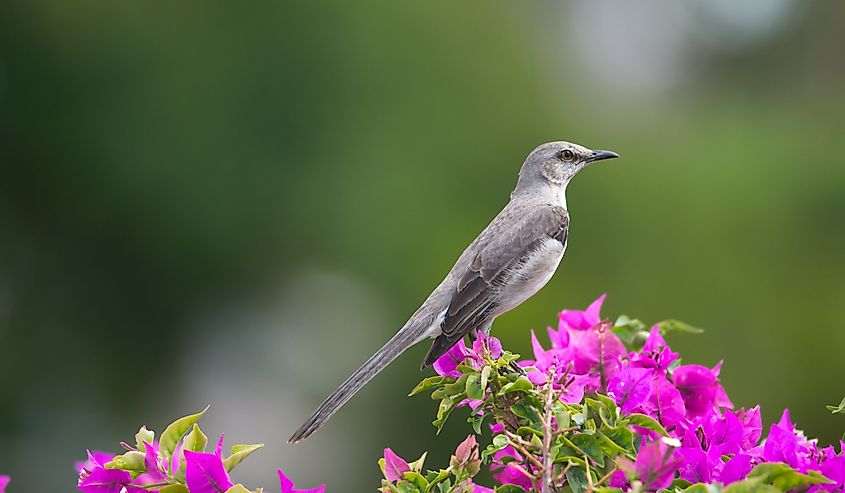
While Florida is home to diverse birds, only one state bird exists. The common mockingbird, also called the Mimus polyglottos, is a bird with a pleasant song that mimics other birds' songs and noises. While the bird is well known for mimicry, experienced birders can identify a mockingbird's song. A mockingbird will repeat its song three to five times before moving on to a different song. Like musicians, the bird showcases its maturity and experience with the complexity of its repertoire.
Mockingbirds are small, reaching a length of ten inches with a fifteen-inch wingspan. They have a grayish upper portion and a white underside. Males typically have more white feathers than females.
While some people find the mockingbird's song annoyingly repetitive, through the night, the bird is helpful for the surrounding ecosystem. It feeds on insects and weed seeds. In the spring, mockingbirds also eat ripe berries. The bird stays in Florida year-round and is protective of the family nest. When mockingbirds nest, building the nest is a team effort between the male and female birds. They lay between three to six eggs per nest.
Florida isn't the only state with a claim to the Mockingbird as its emblem. Arkansas, Mississippi, Tennessee, and Texas are four other states that claim the bird as their state symbol.
Common Birds
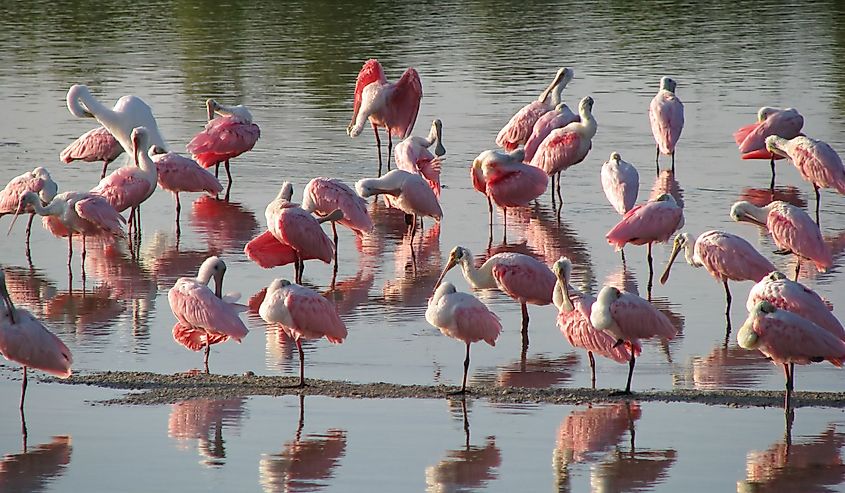
Besides Florida's state bird, many other birds are commonly spotted in the state. These include Leach's storm petrel, the Zebra Finch, the trumpeter Swan, Townsend's Warbler, the Black Swan, the Fork-tailed Flycatcher, the Red-billed Tropicbird, and the House Sparrow.
A common bird found in the forested swamps and wetlands of Florida is the Roseate Spoonbill. The bird is larger than a heron, standing about 2 to 2 1/2 feet tall. Its wing span is about 4 1/2 feet. The bird has deep, rosy-colored feathers on its wings and body. The Roseate Spoonbill's head is a yellowish-gray blue color, and the bird has notably red eyes. The bill appears flattened, similar to the shape of a spoon, which gave the bird its name.
The Carolina Chickadee is another commonly spotted bird in Florida. The bird is often seen around backyard feeders and has a recognizable call that sounds like "chikadeedeedee," or "chickadee cheddar." Carolina Chickadees are a bird found in the Eastern United States. They grow under 5 inches in length and have a notable coloring pattern. They have a black cap and throat area with light undersides and gray backs.
If you are walking in the forest in Florida, you will most likely see a Tufted Titmouse. This is another bird found year-round in the southeastern United States. Quite often, you will also find this bird at a backyard feeder. The birds grow to about 6.5 inches in length. They have light rust-colored sides, a white underbelly, and a gray back and tail. Birders will identify the bird by its call, which sounds like "sher sher sher."
Migratory Birds
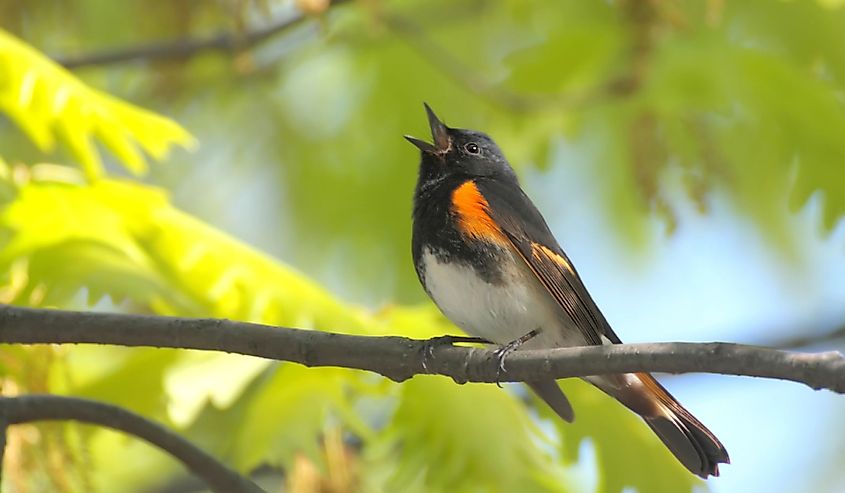
Birders like to visit Florida in the fall because there are more birds in the state as there are more than 100 species stop in Florida for at least part of their migration. On the coast, you will find shorebirds, waders, gulls, and terns. Finches and pine siskins are common winter visitors. House finches go southward in Florida into the peninsula. The pine siskin has a bold look with streaked plumage and a sharp beak.
A bird that sometimes migrates to Florida is the Cedar Waxwing. These birds have unique coloring with a brown head, black beak, and brown, blue, and yellow body. Although they fly in a flock, they don't tend to visit the same place consistently every year. Some years they visit Florida on their migration path, while other years they may avoid Florida altogether.
Some birds live in Florida year-round, but their numbers increase in winter because species members migrate from other states. One of these bird species is the Greater Sandhill Crane. There are up to 25,000 of these birds, and they all seek refuge in Florida in the winters. The Spotted Solitary is another bird whose numbers increase in the fall months. While they live in Florida year-round, the members of the species that live in colder states migrate to Florida for the winter.
The American Redstart is a tiny bird with a bright orange belly that visits Florida in the winter. The birds take refuge in trees and nest everywhere, from forests to suburbs.
Birds Unique to Florida
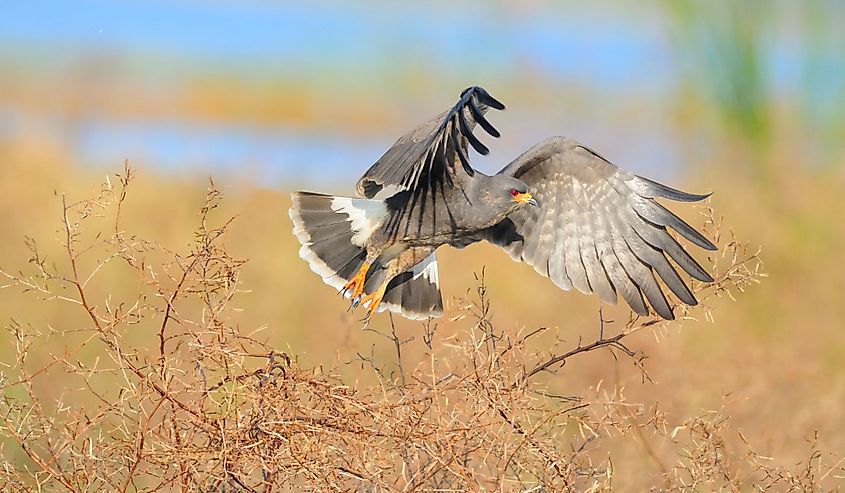
Some of the birds found in Florida are completely unique to the state and aren't found anywhere else that we know of. These birds include the Florida Scrub Jay, and the Everglade Snail Kite.
Scrub Jays are unique to Florida because the birds don't like moving far from where they were first hatched. On average, they are 10-12 inches long, slightly smaller than their blue jay cousins. Their coloring is also softer than the blue jay. While they still have the vibrant blue coloring on their neck, wings, and tails, their back and chest are a light grey. On top of their head and throat, they have whiteish feathers. Scrub jays have a very specific habitat, exclusively living in habitats with shrubs and oaks less than 15 feet tall.
The Everglade Snail Kite is a subspecies of Snail Kites that lives exclusively near freshwater wetlands, which are an important habitat found in central Florida. Snail Kites have a deeply curved yellow-to-orange beak with a pointed black tip. The beak was specially evolved to open shells since Snail Kites only eat apple snails. Due to the draining of freshwater habitat and decreases in water quality, the population of Everglade Snail Kites has decreased. The State of Florida and the United States government both list the bird as endangered.
Endangered Species
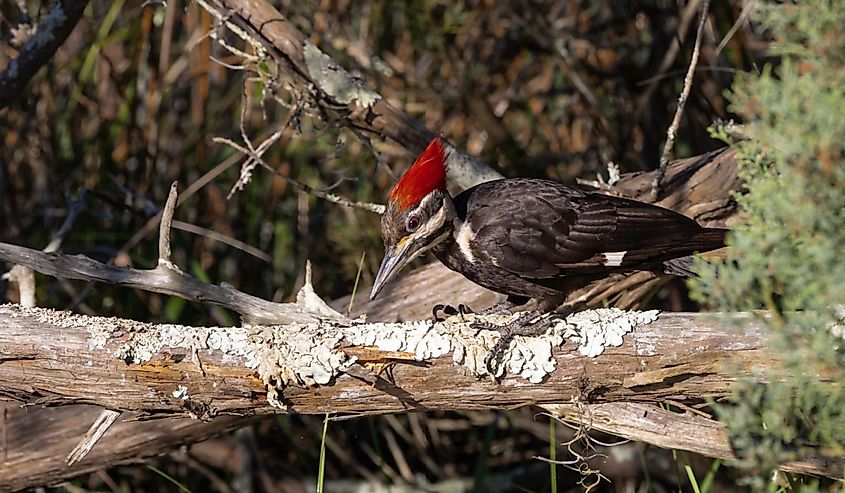
An ivory-billed woodpecker on old wood looking for food.
Beyond the Everglade Snail Kite, Florida is home to other endangered species. Out of the 530 bird species in the state there are 120 endangered species. Some of the endangered bird species in Florida include the American Oystercatcher, Bald Eagles, Black Skimmers, Brown Pelicans, Florida Grasshopper Sparrows, Little Blue Herons, and Florida Scrub Jays. The Ivory-billed Woodpecker is a very rare bird species in Florida. The status of the bird in the International Union for Conservation of Nature is critically endangered. There is also a possibility that the bird is extinct since the last possible sighting was in 2004.
Non-profit organizations are working to conserve Florida's endangered bird species. One of them is Audubon Florida. The not-for-profit works with a network of grassroots chapters to conserve Florida wildlife, including birds. Organizations such as the Partners in Flight and North American Bird Conservation Initiative work to develop landscape-oriented conservation plans for native birds. This helps establish local bird populations. These organizations also set up population goals and habitat objectives. Conservation organizations are also important players in spreading awareness about bird conservation.
Conservation Issues
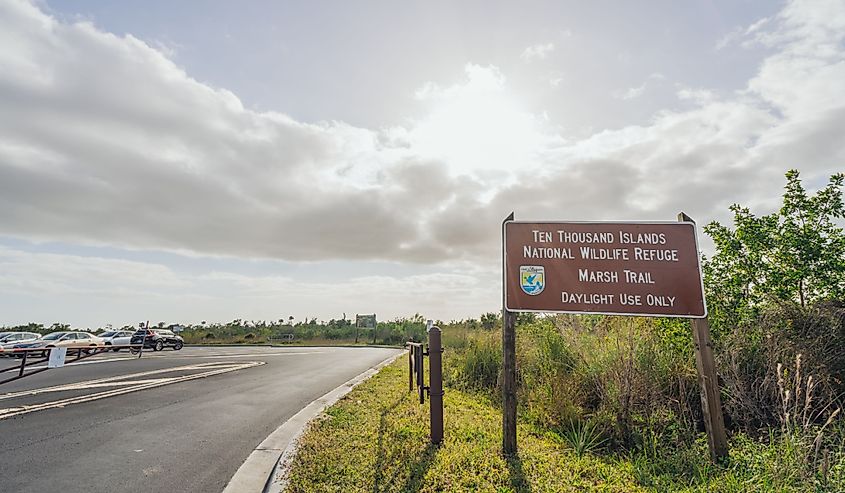
One of the biggest issues birds face in Florida is habitat loss. As the population in Florida expands and the state builds more infrastructure, this takes away safe spaces for birds. While backyards and birdfeeders are great places for birds to enjoy, some birds depend on very specific types of habitat. For example, some birds depend on salt marshes and tropical hardwood hammocks. Climate change has also impacted Florida birds. Changing weather patterns have affected other animal populations. This, in turn, affects birds' ability to find food and reproduce.
Top Locations for Birdwatching
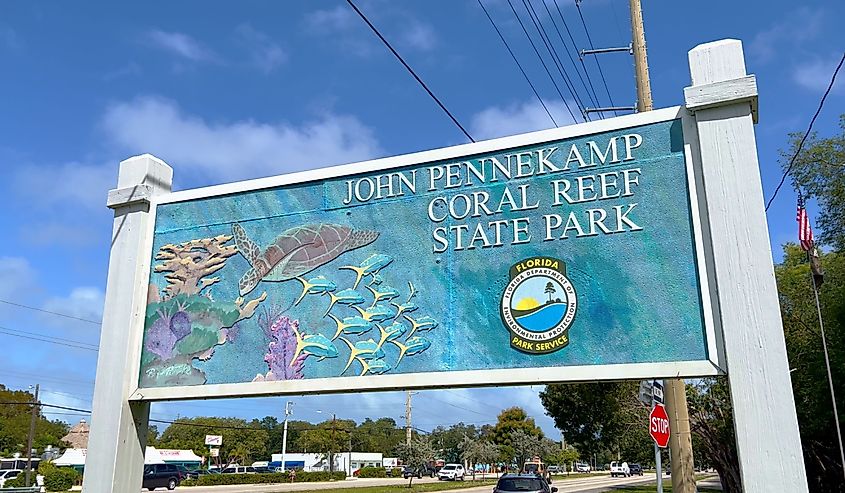
While you can see birds almost everywhere in Florida, a few spots are popular to visit where you will see them in more abundance. These areas include the Upper Florida Keys, John Pennekamp State Park, The Florida Keys Wild Bird Center, and The Loop Road in Big Cypress National Preserver. In the Upper Florida Keys, bird watching is popular all year long. The Keys are at the end of the Florida peninsula. John Pennekamp State Park is a great spot to explore coral reefs and a great destination for nature walks. Common birds in the park are the Bahamas, mockingbirds, gray kingbirds, Gannets, petrels, thick-billed vireo, and sooty terns. Visiting the Florida Keys Wild Bird Center will allow birders to speak with an Ornithology expert and witness bird rehabilitation. Finally, the Loop Road in Big Cypress National Preserve spot is 26 mils of mostly unpaved road to explore. You will likely come across trees full of herons and egrets along the route. One of the best times to see birds is during the winter and spring months when migratory birds are also present to watch.
Birding Ethics
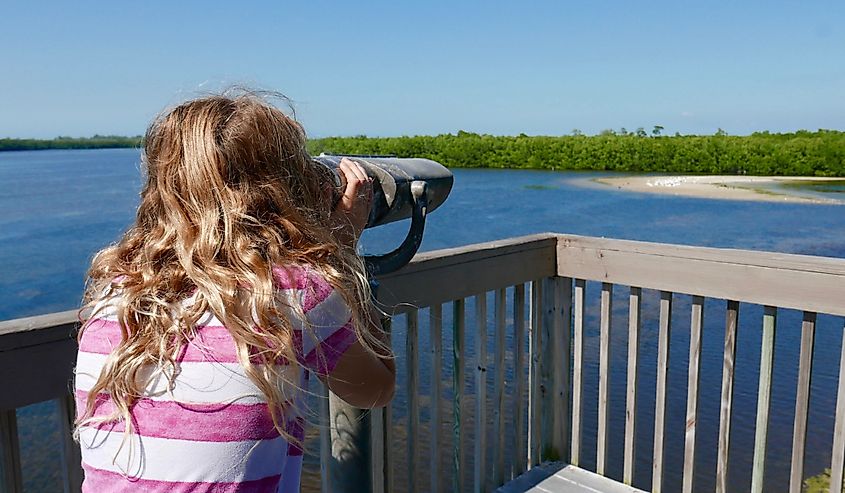
While there are many birds to enjoy watching in Florida, it's important to enjoy their beauty and respect their space. Keeping your distance helps keep the birds safe and limits their stress. This is why a high-quality pair of binoculars is so important. Getting too close to birds can cause them unnecessary stress. Besides getting too close, you should avoid being too loud and leaving dogs at home.
Anyone passionate about birds should consider getting involved with bird conservation in Florida. The best way to do this is by contacting a local conservation authority or Audubon Florida. Local conservation authorities have projects to get involved. Some common projects usually include bird counts and local habitat restoration. Helping protect birds is important for the health of ecosystems. Birds help keep everything in balance. Birds pollinate plants, disperse seeds, scavenge carcasses, and recycle nutrients. Beyond this, they give us a source of wonder to admire daily.
